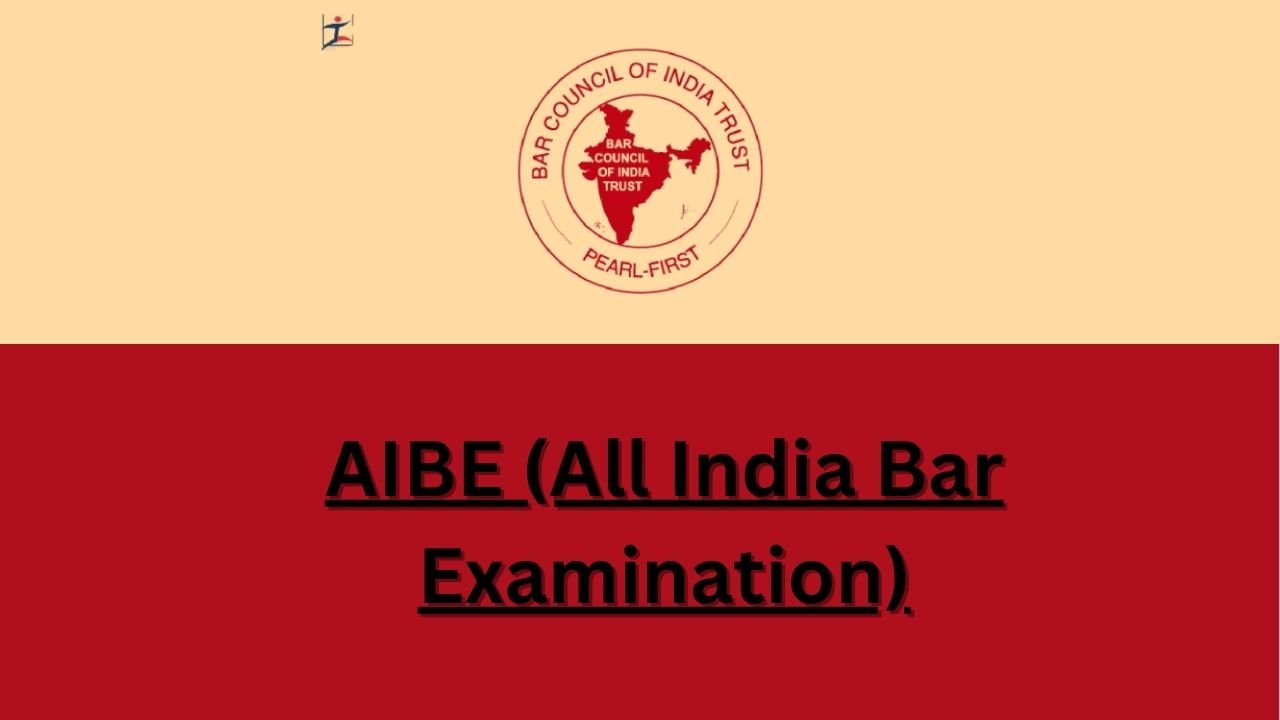The All India Bar Examination (AIBE) is a crucial certification exam for law graduates in India, enabling them to practice law professionally across the country. This examination, conducted by the Bar Council of India (BCI), serves as a benchmark to assess the knowledge and skills of aspiring advocates, ensuring they meet the standards required to represent clients and uphold the legal system.
Purpose and Significance of AIBE
The AIBE is designed to evaluate an advocate’s ability to understand and apply various aspects of the law in real-world situations. It ensures that newly graduated lawyers possess a minimum standard of legal knowledge, which is essential for the competent practice of law. Passing the All India Bar Examination is mandatory for law graduates to receive their Certificate of Practice (CoP), which allows them to practice law in India. Without this certification, a law graduate cannot appear in any court or legal forum in the country.
Eligibility Criteria for AIBE
To be eligible to appear for the AIBE, candidates must meet the following criteria:
- Educational Qualification: The candidate must hold a three-year or five-year LL.B. degree from a recognized law school in India.
- Bar Council Enrollment: The candidate must be enrolled with a State Bar Council as an advocate. The enrollment number issued by the State Bar Council is a mandatory requirement for AIBE registration.
Exam Pattern and Syllabus
Exam Format
The All India Bar Examination is an open-book exam, meaning candidates can bring study materials, notes, and books to refer to during the examination. This format is chosen to test the candidate’s ability to apply legal concepts rather than merely recalling information. The exam is conducted in both online and offline modes, allowing candidates flexibility in how they choose to take the test.
Syllabus Overview
The AIBE syllabus covers a wide range of legal topics, ensuring that candidates have a comprehensive understanding of Indian law. Some of the key subjects include:
- Constitutional Law: Understanding the Constitution of India, including fundamental rights, duties, and various constitutional provisions.
- Criminal Law: Knowledge of the Indian Penal Code (IPC), Criminal Procedure Code (CrPC), and related legal principles.
- Civil Procedure Code (CPC): Familiarity with civil laws, including procedures followed in civil courts.
- Evidence Act: Understanding the rules and principles governing the admissibility of evidence in courts.
- Family Law: Knowledge of laws related to marriage, divorce, adoption, and inheritance.
- Administrative Law: Principles governing the functioning of administrative authorities in India.
- Public Interest Litigation (PIL): Understanding the concept and procedures of PIL, which allows individuals to seek legal remedies in the interest of the public.
In addition to these subjects, the syllabus also includes other important areas like company law, environmental law, labor and industrial law, and alternative dispute resolution.
Preparation Tips for AIBE
Understand the Syllabus Thoroughly
Given the vastness of the AIBE syllabus, it is crucial to have a clear understanding of all the topics covered in the exam. Candidates should start by reviewing the official syllabus provided by the Bar Council of India and create a study plan that allows them to cover each subject systematically.
Practice with Previous Year Papers
One of the most effective ways to prepare for the All India Bar Examination is to practice with previous year question papers. This not only familiarizes candidates with the exam format but also helps them understand the types of questions that are commonly asked. Regular practice with past papers can significantly improve time management skills during the exam.
Utilize Open Book Advantage Wisely
Although the All India Bar Examination is an open-book exam, it is important to use this advantage wisely. Candidates should organize their study materials and notes in a way that allows for quick reference during the exam. Relying too heavily on searching through books during the exam can be time-consuming, so it’s essential to have a strong grasp of key concepts beforehand.
Focus on Weak Areas
Candidates should identify and focus on their weaker areas during preparation. Regularly revisiting these topics and seeking help from mentors or study groups can help in overcoming difficulties and building confidence in these areas.
Registration Process for AIBE
Online Registration
The registration process for All India Bar Examination is conducted online. Candidates need to visit the official AIBE website and complete the registration form by providing necessary details such as personal information, educational qualifications, and State Bar Council enrollment number.
Fee Payment
After completing the registration form, candidates are required to pay the examination fee , the payment can be made online through various modes such as credit/debit cards, net banking, or UPI. The fee structure varies depending on the candidate’s category (General/OBC/SC/ST).
Admit Card and Examination Centers
Once the registration and payment processes are completed, candidates can download their admit cards from the official website. The admit card contains important details such as the examination center, date, and time. Candidates must carry the admit card along with a valid photo ID to the examination center on the day of the exam.
Results and Certification
Result Declaration
The results of the AIBE are usually declared within a few weeks of the examination. Candidates can check their results on the official website by entering their roll number and other required details. The result will indicate whether the candidate has passed or failed the examination.
Issuance of Certificate of Practice
Candidates who pass the All India Bar Examination will be issued a Certificate of Practice by the BCI. This certificate is a formal recognition of the candidate’s eligibility to practice law in India. The Certificate of Practice is typically dispatched to the candidates’ registered address within a few months of the result declaration.
Conclusion
The All India Bar Examination is a vital step for law graduates in India, ensuring that they meet the professional standards required to practice law effectively. By thoroughly preparing for the exam and understanding its various aspects, candidates can confidently approach the AIBE and secure their future as practicing advocates in India.
Read our more blogs:-



